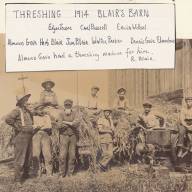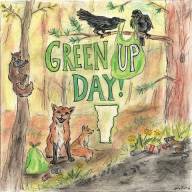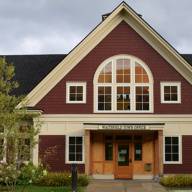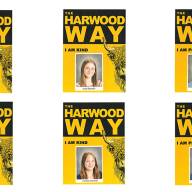Seven years ago, the Stephenson family bought a box of strawberry starters and planted them at their Moretown farm, Pony Farm. They wanted to grow things that weren’t widely available in The Valley and found inspiration with strawberries after going to a strawberry festival at Hartshorn Organic Farm, Waitsfield.
Today, they offer strawberry-picking at a small scale – with about 1,000 feet of fruiting plants, having adding another 500 feet this year. They remove the berries from the first-year starters so that their runners can proliferate, enjoying their fruits in the following years – while also doing a ton of hand-weeding.
Their customer base is small and local, and they like to keep pricing low, said Chris, who moved to working on the farm full time about four years ago after a few decades of working in e-commerce. While the farm is hosting a ‘soft opening’ for berry picking today, June 13, they typically communicate with customers through email and a digital newsletter.
One of their customers, a 94-year-old resident who isn’t able to pick her own berries, has them picked by Chris and delivered by The Valley’s local transportation service for seniors, Free Wheelin’.
“We don’t advertise, and we’re not trying to pull in a ton of tourists,” Chris said. “We want people to connect with local food, with nature, and with community land – especially here in The Valley.” Part of their mission at Pony Farm is to inspire people to grow things themselves, he said. While they offer a pick-your-own garlic patch later in the summer, they also sell seeds for people to take home.
NATURE-BASED PLAY
Cory and Chris Stephenson bought Pony Farm – a 160-acre property that includes 30 acres of fields – from the Austin family in 2015. The Austins had Shetland ponies and dairy cows going back to at least the early 1940s.
The couple bought a home in Fayston in 2003, hoping to move from their residence in Anterim, New Hampshire, but couldn’t find work in The Valley at the time. They decided to stay in New Hampshire for a while, having two children there. In 2007, they came to live in The Valley full time, with Chris finding work at Dealer.com in Burlington, building digital marketing platforms until he fully transitioned to farming in 2020. Cory initially worked with child care providers across the state to instill nature-based play through Four Winds Nature Institute, as well working as a naturalist for Mad River Glen for over a decade. In 2016, she became the director of Moretown Public Library.
Both dreamed of having a farm at the end of a dirt road somewhere in Vermont, growing and selling Christmas trees to local families. They embarked on a 10-year process to find agricultural land, thinking about what kind of land they wanted, and their overall vision for it – “collectively soul searching,” Chris said. Eventually they found Pony Farm on the market.
When they first moved in, the family deconstructed a house built in the 1850s that had become uninhabitable. They turned a small barn into a farmstand, using reclaimed wood from the house demolition to build a porch around it. They lived in one-half of another home on the edge of the property, renting the other half to a local couple.
They put the land into the state’s Current Use Program, which gives property owners a lower tax rate if they keep their land out of development, and spent four years fixing the farm’s spring line to use as a water source. They also got an eight-wheel tractor and reclaimed large parts of the land. “I have a lot of bent metal to show for it,” Chris said, laughing.
FIELD OF DEATH
In their second year at the farm, the family started growing Christmas trees, including Balsam, Canaan, and Fraser firs. Chris grew the first batch of starters for five years before selling them off – a lot of 12 trees on the smaller side. The next year, they grew and sold 18, then 30. He said their output increases as he continues to learn about how to grow them successfully. “I’ve killed so many trees, but I think I’ve finally figured this out.”
Currently, he has 1,700 trees growing in a 5-acre plot that he calls “the field of death,” with the blazing sun, dry earth and infinite weeding to be done. He tends to them year-round – fertilizing, pruning, shearing, mowing and other tasks. He also has 2,100 seedlings growing in another field, plus a smaller garden that’s shaded by remnants of a stone wall that used to form the base of the original house.
In one small patch, he planted the seeds of pine cones collected from the top of Mad River Glen while skiing. A single, tiny seedling is currently emerging from the patch. In about three years, he will move many of these seedlings to another field. “It’s all a bit addictive once the wheels get spinning,” he said.
POTATOES AND BERRIES
The Stephenson family also grows and sells small batches of potatoes – which Chris said isn’t very profitable, as well as blueberries, elderberries, currants and horseradish. They also have an orchard of about 70 fruit trees.
Farming brings some challenges, Chris said, and lots of learning. “I would say our number one customer is the wildlife,” he said, pointing to a hole in the strawberry patch created by a vole. He said the physicality of farming is demanding. “You burn out, so you have to learn how to spread out your work and take care of your body.”
The farm wasn’t what the Stephensons initially dreamed of – after all, it’s not at the end of a dirt road, but today, Chris said it’s hard to imagine having thought so. He expressed deep admiration for the land – with its rolling hills, 130 acres of forest, Mad River access, and of course, plots of locally-grown food.
Residents interested in strawberry picking can reach the farm at













